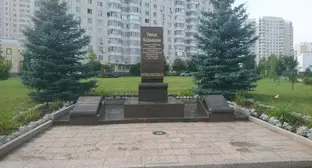01 December 2014, 09:00
Week in the Caucasus: review of main events of November 24-30
Signing of Russian-Abkhaz alliance and strategic partnership treaty; ECtHR's award of 15,000 euros of compensation to ex-Mayor of Makhachkala Said Amirov; eighth delivery of humanitarian aid from Russia to Donbas; mass poisoning in Armenian kindergarten; license revocation "PrestizhKreditBank" of Derbent and cancellation of CTO regime in the Untsukul District of Dagestan; upholding by Russia's SC of verdict to natives of Ingushetia for terror act in "Domodedovo" Airport, – see the review of these and other events in the Caucasus during the week of November 24-30, 2014, prepared by the "Caucasian Knot".
Signing the alliance and strategic partnership treaty by Russia and Abkhazia
In Sochi, on November 24, Presidents of the Russian Federation and Abkhazia Vladimir Putin and Raul Khajimba signed a treaty on strategic partnership and alliance. The document addresses the issue of increasing Russian-Abkhaz cooperation in various areas, especially in the fields of security and economy. It is already known that in 2015 Russia will provide Abkhazia, within the framework of the treaty, with 5 billion roubles. Georgia demanded the convening of the UN Security Council on the fact of signing the above treaty, since, as stated by Georgian political analysts, it is prejudicial to the interests of Tbilisi by actually providing Russian authorities with the control over the territory of Abkhazia. The non-recognition of the newly-born treaty was declared by the NATO Secretary General Jens Stoltenberg and the representative of the US State Department Jeff Rathke.
ECtHR awards Said Amirov with 15,000 euros for his custody
On November 27, the European Court of Human Rights (ECtHR) adopted a decision on the complaint of Said Amirov, the dismissed Mayor of Makhachkala, who was sentenced to 10 years in prison on charges of preparing a terror act. The complaint was against his custody during the investigation despite his medical contraindications. Amirov was put into SIZO (pre-trial prison) for no good reason and received no due medical care there, said the complaint. The ECtHR found a violation of Article 3 of the European Convention on Human Rights (ECHR) (prohibition of torture) and obliged Russia to pay, within three months, 15,000 euros to Amirov for the inflicted moral harm, and 850 euros as compensation of the expenses incurred for filing the complaint to the ECtHR. The remaining claims of the applicant – a violation of Amirov's rights under Article 5 of the ECHR (right to liberty and personal inviolability) – were rejected.
Donbas receives eighth humanitarian convoy from Russia
On November 30, the eighth Russian motor convoy delivered humanitarian aid to Donbas. The trucks left Noginsk on November 27; on November 28 they arrived in the Rostov Region, where they passed the due customs procedures at the Russian-Ukrainian border, and moved to Donetsk and Lugansk. On the same day, all the trucks, which had brought, according to the Russian party, building materials and foodstuffs, were unloaded and left Donetsk and Lugansk empty. The convoy drove safely, despite the difficult weather conditions – the Rostov Region was hit by heavy snowfall, because of which the traffic on the Rostov-Volgodonsk highway section was restricted.
The control of the humanitarian convoy was performed by customs officers and border guards of Ukraine, said Ryan Farukshin, the head of the press service of the Southern Customs Department of Russia, while the Russian Minister for Emergencies Vladimir Puchkov asserts that all the procedures of sending the aid are agreed with the ICRC (International Committee of the Red Cross) and the Ukrainian party and are "rigorously" followed. However, according to Andrei Lysenko, the spokesman of the Ukrainian National Security Council (UNSC), the content of the cargoes from Russia is unknown – the Ukrainian combined detachment of border guards and customs officers made only a visual inspection of the Russian cargos at the border. Lysenko is sure that "some of the freights arrive to militants in the form of foodstuffs; however, most of them are ammunition, equipment and others items needed for fighting."
Mass poisoning of children in Armenian kindergarten
In the evening on November 28, a mass poisoning of children occurred in a kindergarten in the city of Yeghvard, Kotayk Region of Armenia. As of the evening of November 29, 67 children were hospitalized and diagnosed with dysentery. On November 30, the number of hospitalized children reached 94. According to the preliminary version, the poisoning could be caused by nutritional factors; however, but the real reason may be in secondary pollution and poor hygienic conditions, said Artavazd Vanyan, the head of the Hygienic and Anti-Epidemiological Inspection of the Ministry of Public Health of Armenia.
Revocation of license of Derbent-based "PrestizhKreditBank" and cancellation of CTO regime in Untsukul District of Dagestan
On November 26, the Bank of Russia revoked the license for banking operations from the Commercial Bank "PrestizhKreditBank", registered in the Dagestani city of Derbent, explaining its decision by the bank's high-risk crediting policy and questionable large-scale cash transactions. An interim administration was appointed to run the bank. Since the "PrestizhKreditBank" is a member of the deposit insurance system, the Deposit Insurance Agency (DIA) has promised to start paying the insurance compensations to depositors not later than December 10. The "PrestizhKreditBank" is the seventh bank of Dagestan, deprived of the license. Other victims are the banks "Caspiy", "Mesed", Bank for Social Development "Dagestan", "Esidbank", "Imbank" and the "New Commercial Bank"; some of them have already been declared bankrupt.
On November 26, in the Untsukul District of Dagestan, the counterterrorist operation (CTO) regime, which operated there from March 8, was lifted. On November 25, at a meeting in the district administration, it was decided to set up a commission for assessing the damage caused as a result of the CTO to residents of the settlement of Vremenny, which is geographically a part of the village of Gimry, where power agents carried out their special operations since September 18. On November 26, the first group of residents jointly with the commission could get into the settlement. According to their stories, the houses suffered a lot from the CTO; most of them are currently unfit for residence.
Upholding by Russia's SC of sentence to Ingush natives passed for terror act at Domodedovo Airport
On November 25, the Russia's Supreme Court (SC) upheld the sentence to four natives of Ingushetia passed on November 11, 2013, by the Moscow Regional Court on charges of preparing and committing the terror act at Moscow’s Domodedovo Airport on January 24, 2011. Islam Yandiev, Ilez Yandiev and Bashir Khamkhoev were sentenced to life imprisonment in a special security colony. Ahmed Evloev was sentenced to 10 years in a general regime colony. All the accused pled non-guilty and appealed against the verdict to the Russia's SC, which, however, left their complaints without satisfaction. After the announcement of the SC's decision, the advocates of all the four convicts declared their intention to appeal against the decision to the European Court of Human Rights (ECtHR).




